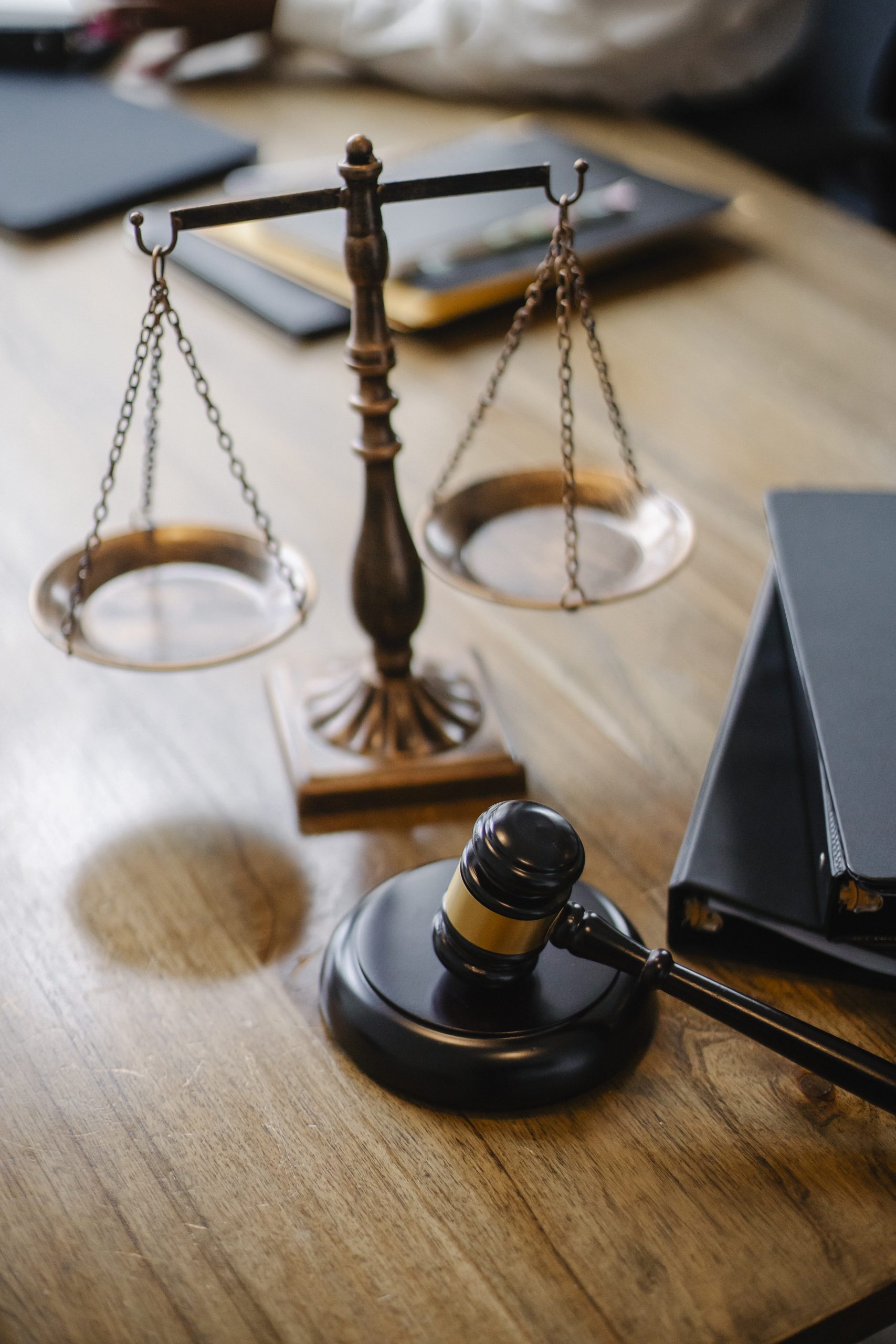In the realm of criminal law, due process stands as a fundamental principle, ensuring that every individual accused of a crime is afforded fair treatment under the law. It acts as a safeguard against wrongful convictions and unjust punishments, emphasizing the importance of procedural fairness. Understanding the intricacies of due process is essential for anyone navigating the legal system, whether as a defendant, victim, or witness. By delving into the concept of due process and its key components, individuals can gain a comprehensive understanding of their rights and make informed decisions in the face of criminal charges. With the guidance of a skilled criminal defense attorney, one can navigate the complexities of the legal landscape with confidence and seek the fair treatment they are entitled to.
Due Process
Due process is a fundamental concept in the legal system that ensures fairness and protects the rights of individuals involved in legal proceedings. It is a principle that governs both criminal and civil cases and is enshrined in the United States Constitution. Understanding due process and its importance is crucial for anyone navigating the legal system.

Overview of Due Process
Due process refers to the legal requirement that individuals receive fair treatment and have the opportunity to be heard before any adverse actions are taken against them. It guarantees that the government will respect and protect the rights of individuals and will not deprive them of life, liberty, or property without following the proper legal procedures.
Importance of Due Process in the Legal System
The importance of due process cannot be overstated in the legal system. It provides essential safeguards against abuse of power, ensuring that individuals are treated fairly and justly. Due process ensures that everyone, regardless of their status or position, is entitled to fair treatment in legal proceedings. It helps maintain public trust and confidence in the justice system by promoting transparency, accountability, and the rule of law.
Constitutional Basis of Due Process
Due process is grounded in the United States Constitution, particularly in the Fifth and Fourteenth Amendments. These amendments provide protections against the deprivation of life, liberty, or property without due process of law. The due process clauses of these amendments serve as the foundation for the application of due process in various legal contexts.
The Fifth Amendment and Due Process
The Fifth Amendment to the United States Constitution includes the Due Process Clause, which prohibits the federal government from depriving individuals of life, liberty, or property without due process of law. It ensures that individuals have certain procedural and substantive rights before the government can take any adverse actions against them. The Fifth Amendment’s due process clause primarily applies to federal criminal cases.

The Fourteenth Amendment and Due Process
The Fourteenth Amendment to the United States Constitution extends the protection of due process. It includes the Due Process Clause, which prohibits state and local governments from depriving individuals of life, liberty, or property without due process of law. The Fourteenth Amendment ensures that individuals have the same fundamental rights and protections at both the federal and state levels. Its due process clause is particularly significant in civil cases and cases involving state actions.
Elements of Due Process
Due process consists of several key elements that ensure individuals are treated fairly and justly in legal proceedings. These elements provide procedural safeguards and protect the rights of individuals.
Notice and Opportunity to Be Heard
One of the fundamental elements of due process is the right to notice and the opportunity to be heard. Individuals must be informed of any charges or actions against them and have the chance to present their side of the story before any adverse decisions are made. This ensures that individuals have a meaningful opportunity to defend themselves and respond to the accusations or claims made against them.
Right to a Fair and Impartial Hearing
Due process guarantees the right to a fair and impartial hearing. This means that individuals involved in legal proceedings have the right to have their case heard by an unbiased and neutral decision-maker. It ensures that the decision-maker will consider the evidence and arguments presented by both sides before making a decision.
Right to Present Evidence and Cross-Examine Witnesses
Another important element of due process is the right to present evidence and cross-examine witnesses. This allows individuals to present their own evidence, call witnesses in their favor, and challenge the evidence and witnesses presented by the opposing side. It ensures that the fact-finding process is robust and that all relevant information is considered before reaching a decision.
Right to Legal Representation
Due process guarantees the right to legal representation. This means that individuals have the right to have an attorney represent them in legal proceedings. Legal representation is crucial as it ensures that individuals can navigate the complexities of the legal system effectively and have someone knowledgeable and experienced advocating for their rights and interests.
Procedural Safeguards in Criminal Proceedings
In criminal proceedings, due process includes various procedural safeguards that protect the rights of the accused. These safeguards are designed to ensure that individuals receive a fair trial and are presumed innocent until proven guilty.
Presumption of Innocence
One of the fundamental principles of due process in criminal cases is the presumption of innocence. This means that individuals are presumed innocent until proven guilty beyond a reasonable doubt. It places the burden of proof on the prosecution to present sufficient evidence to establish guilt.
Burden of Proof
Due process requires that the prosecution bears the burden of proving the guilt of the accused. The burden of proof is set at a high standard, beyond a reasonable doubt. This high standard is necessary to protect individuals from unjust convictions and ensures that guilt is established with certainty.
Right to a Speedy Trial
Due process guarantees the right to a speedy trial. This means that individuals have the right to have their case heard within a reasonable time after being charged. The right to a speedy trial ensures that individuals are not subjected to prolonged periods of uncertainty and that justice is delivered in a timely manner.
Right to Confront Witnesses
In criminal proceedings, due process guarantees the right to confront witnesses. This means that individuals have the opportunity to cross-examine the witnesses presented by the prosecution. It allows the defense to challenge the credibility and reliability of the witness statements and ensure a thorough examination of the evidence.
Right to Compulsory Process
Another important procedural safeguard in criminal proceedings is the right to compulsory process. This means that individuals have the right to compel the attendance of witnesses and the production of evidence in their favor. It ensures that individuals can gather the necessary evidence to support their defense and ensure a fair trial.
Right Against Self-Incrimination
Due process protects individuals against self-incrimination. This means that individuals have the right to remain silent and cannot be compelled to testify against themselves. It ensures that individuals are not coerced into providing evidence that may incriminate them and preserves their right to avoid self-discrimination.
Right to Jury Trial
In criminal cases, due process guarantees the right to a jury trial. This means that individuals have the right to have their case heard by a jury of their peers. A jury trial ensures that the final decision is made by a group of impartial individuals who can assess the evidence and determine guilt or innocence.
Right to Appeal
Due process includes the right to appeal. This means that individuals have the right to challenge the decision of a lower court and have their case reviewed by a higher court. The right to appeal provides an opportunity for individuals to correct any errors or injustices that may have occurred during the initial trial.
Due Process in Administrative Proceedings
Due process also applies to administrative proceedings, which are legal processes involving government agencies or administrative bodies. In these proceedings, the same principles of fairness and protection of rights apply. Individuals subject to administrative actions have the right to notice, the opportunity to be heard, legal representation, and other procedural safeguards to ensure fairness.

Application of Due Process in Different Legal Contexts
Due process applies in various legal contexts, including both criminal and civil cases. It ensures fairness and protection of rights in criminal prosecutions, civil lawsuits, administrative actions, and other legal proceedings. The specific application of due process may vary depending on the nature of the case, but the underlying principles remain the same.
Challenges to Due Process
While due process is a fundamental principle of the legal system, there are sometimes challenges to its application. These challenges may arise from various factors, such as limited resources, procedural complexities, or conflicting interests. It is crucial to address these challenges to ensure that individuals receive the full protections of due process.
Violations of Due Process
Violations of due process can occur when the proper procedures are not followed or when individuals are denied their rights during legal proceedings. These violations can lead to unjust outcomes and undermine the integrity of the legal system. It is crucial to identify and address such violations to protect the rights of individuals involved.
Remedies for Violations of Due Process
Legal remedies are available for individuals whose due process rights have been violated. These remedies may include appealing a decision, seeking a new trial, or pursuing a legal action to hold those responsible for the violation accountable. It is important to consult with legal professionals to determine the appropriate course of action in such cases.
FAQs about Due Process
-
What is the difference between procedural due process and substantive due process? Procedural due process refers to the fair procedures and legal safeguards that must be followed in legal proceedings, while substantive due process focuses on the fairness and reasonableness of the laws themselves.
-
Can due process be waived? In some cases, due process rights can be waived, but it is important to consult with legal counsel before making any decisions to ensure a full understanding of the potential consequences.
-
Does due process apply to non-citizens? Yes, due process applies to everyone within the jurisdiction of the United States, regardless of their citizenship status.
-
What can I do if I believe my due process rights have been violated? If you believe your due process rights have been violated, it is important to consult with a legal professional who can assess your situation and advise you on the appropriate course of action.
-
How long does due process take? The duration of the due process will vary depending on the specific case and the legal procedures involved. It is important to work with legal professionals who can provide guidance and manage expectations throughout the process.
Remember, if you have any further questions or concerns about due process or need legal assistance in navigating the complexities of the legal system, do not hesitate to contact us. Our experienced team is here to provide you with the guidance and support you need.



